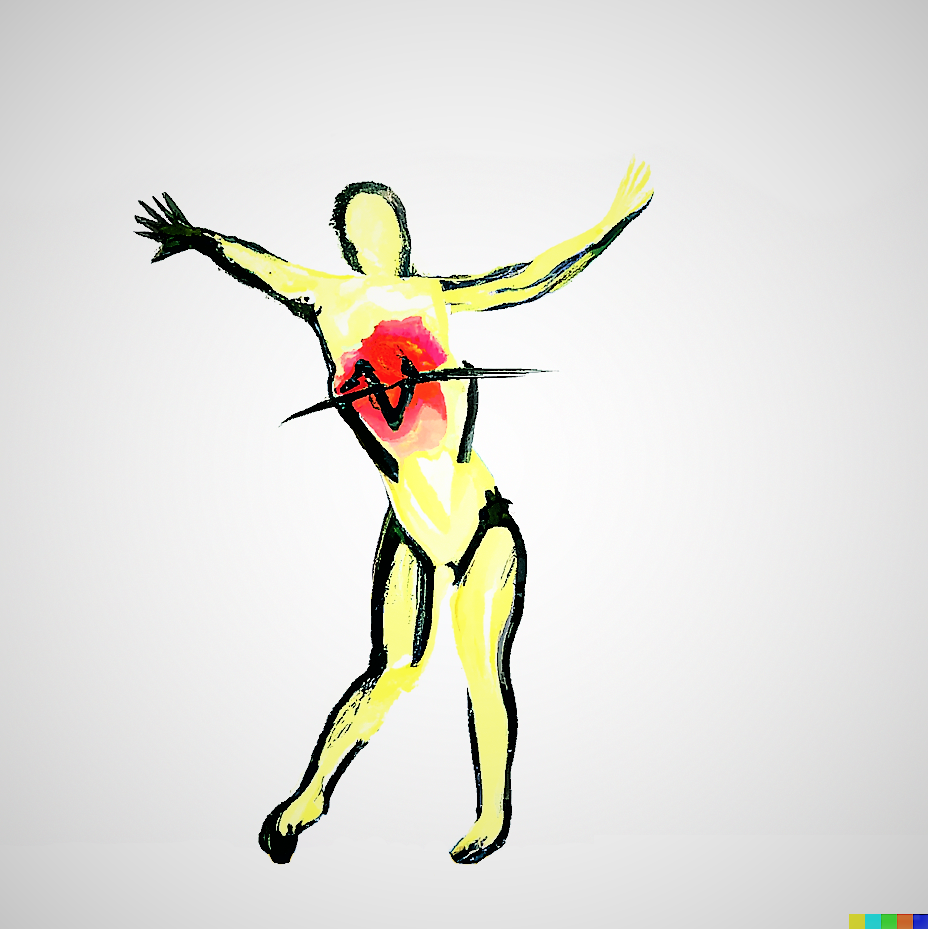Like Becky, who began to show the symptoms of PoTS at an early age of 16, Debbie also began manifesting symptoms when she was almost hitting her early twenties. She would later find out that they were due to PoTS. She was at work on the 13th of February, 2012 when she suddenly collapsed at work. Life, as she knew it, was no longer the same after that. Debbie became a constant visitor in the hospital in a bid to find out the cause of the fainting spells. That year, she got diagnosed with low BP and Syncope.
However, her diagnosis and the symptoms did not match. Also, nothing she was given seemed to work. Instead, the symptoms gathered momentum and became worse as the years went by. It was impossible to stay out of the hospital, so, she continued to visit with the hope that one day, a miracle would happen.
The miracle she wished for later happened, but two years had gone by. Her initial diagnosis changed to Postural Tachycardia Syndrome in (PoTS) 2014. The journey between the first blackout and getting the PoTS diagnosis was in no way a smooth one. It was one filled with many hurdles, obstacles, and limitations. Some came in human form while Debbie had to deal with some within herself. She spent weeks going into and coming out of the hospital. Not only were the blackouts occurring frequently, but they were also severe. She was frequently at A&E with severe injuries due to the uncontrollable nature of the blackouts.
Debbie’s life took a turn for the worse, becoming more difficult. Unfortunately, she was not the only one whose life changed. Her fiancé, mum, other family members, and pretty much anyone that came into daily contact with her got some of the difficulties rubbed off them. Debbie felt as if she was a liability to them. Nevertheless, love and support were what she got from those in this circle. They surrounded her with so much affection that she almost forgot the reason why. Almost is the word because the blackouts came on ever so strongly.
Her blackouts were worse in the mornings, especially after having a restless and sleepless night. After observing the nature, frequency, and pathway of their progression, she realized that some things triggered the occurrence of fainting. Hot environments, prolonged sitting or standing, and eating some particular meals were triggers. Armed with that knowledge, she tried to avoid them but to no avail.
A day meant for celebration turned out to be like the rest of the days since she had her first fainting. Debbie spent her 20th birthday in bed, unable to move or go anywhere because of severe migraines and fatigue. She had no blackout symptoms before and no memory afterward. The only thing she knew was that everyone told her that she had a seizure, although they all ruled out epilepsy. The only telltale sign that something truly happened was that her body later felt as if it had been run over by a bus.
Things progressed in a fast manner after that. A lady that had always been very independent lost that. She had to depend and rely on people around her to get things done, even the basic tasks that ordinarily needed no one’s intervention. She lost her self-confidence because of that. In a short while, she watched as she metamorphosed into someone she could not recognize. Before then, Debbie had always been a nice person to be around. But she allowed the condition to get to her core and remold her.
The independent and confident lady became a shadow of herself. She moved around the house by crawling and getting confined to a wheelchair. Finally, Debbie gave room for PoTS to have its way. Without any restriction, PoTS took over her life.
For Debbie, the worst periods of her life were those dark times of unknowns and questions. She was having symptoms, blackouts, and uncommon happenings, but she could get no one to tell her what was wrong. It was obvious that something was amiss, but no one could pinpoint what it was. One of the hardest conversations was numerous doctors telling her that she had Pseudo seizures. They could think of nothing remotely close to what was wrong with her. It hit her at a point below the belt.
Debbie, supported by her mother, refused that diagnosis. Instead, they asked for a second diagnosis. As a result of the firmness of their resolution, Debbie got a reference to Salford Royal Hospital. While there, she met a Neurologist who attended well to her and gave her a listening ear. That was the turning point in her PoTS story.
Everything changed, and Debbie could see life offering her a chance to get her life back together. She began to hope again, even though it appeared that it was too soon to expect anything positive. However, she held on to that tiny shred of hope. The result from her tilt table test showed a drop in BP and confirmed a diagnosis of PoTS. For the first time, she could at least see evidence that indeed, something was going south in her body.
The next stage was the control stage. They tried different ways to ensure that at least, Debbie lived a close-to-normal life, although it was clear that her life was forever altered. Things went up and down at a time with several reactions to a different medication. One of such was fludrocortisone. While many people gave positive feedback when they used fludrocortisone, the opposite happened in the case of Debbie. It did nothing other than increase her weight.
With that, they hit a brick wall and referred her to a syncope specialist at Manchester Royal Infirmary. The specialist put her on midodrine and propranolol, which increased her hope. With the correct medication, support, listening to her body, and adapting her lifestyle and diet, she got a better quality of life.
Debbie realized on time that it was not all about the use of medication. For her to get the type of change she wanted, she had to go the extra mile. She went to the gym, swam, and drank lots of water to ensure that she was not dehydrated. In short, it was a 3600 lifestyle change. She also accepted those things she could not change or stop doing. For instance, she had to limit anything that would deplete her energy tank; that included socializing. For a lady in her prime time of life, it was hard to give up seeing her friends or going out to have fun. However, it was a necessary step to take to live a somewhat healthy life. Activities such as keeping late nights, getting extremely tired, standing, or sitting for too long became taboo for her because they aggravated her PoTS.
In addition to the lifestyle overhaul, Debbie also got a cardiac monitor attached to her heart. Its function was to monitor her heart rate to quickly discover any anomaly. Also, she wore a Medic Alert charm necklace to help Emergency Services obtain information from a phone number. She has a unique reference number connected directly to her records which provides access to details via electronic information 24/7, 365 days a year. The advanced technology ensured her safety, giving Debbie hope that her PoTS would be treated if she collapses and was unable to communicate with anyone.
Debbie pursued a career as a Nail Technician, allowing her to work hours that suited her. It also accommodated her PoTS.
For Debbie, the endless love and support she got from her family and friends gave her the strength and courage to wade through the stormy waters of PoTS. Especially, her mum and fiancé, Genn, who staunchly stood by when the going got tough. To crown it all, Genn proposed, and they tied the knot on the 20th of March 2019 in a beautiful and simple wedding. Debbie’s heart is full of nothing but gratitude. She may not have everything she has ever desired, but she has the best in life.


